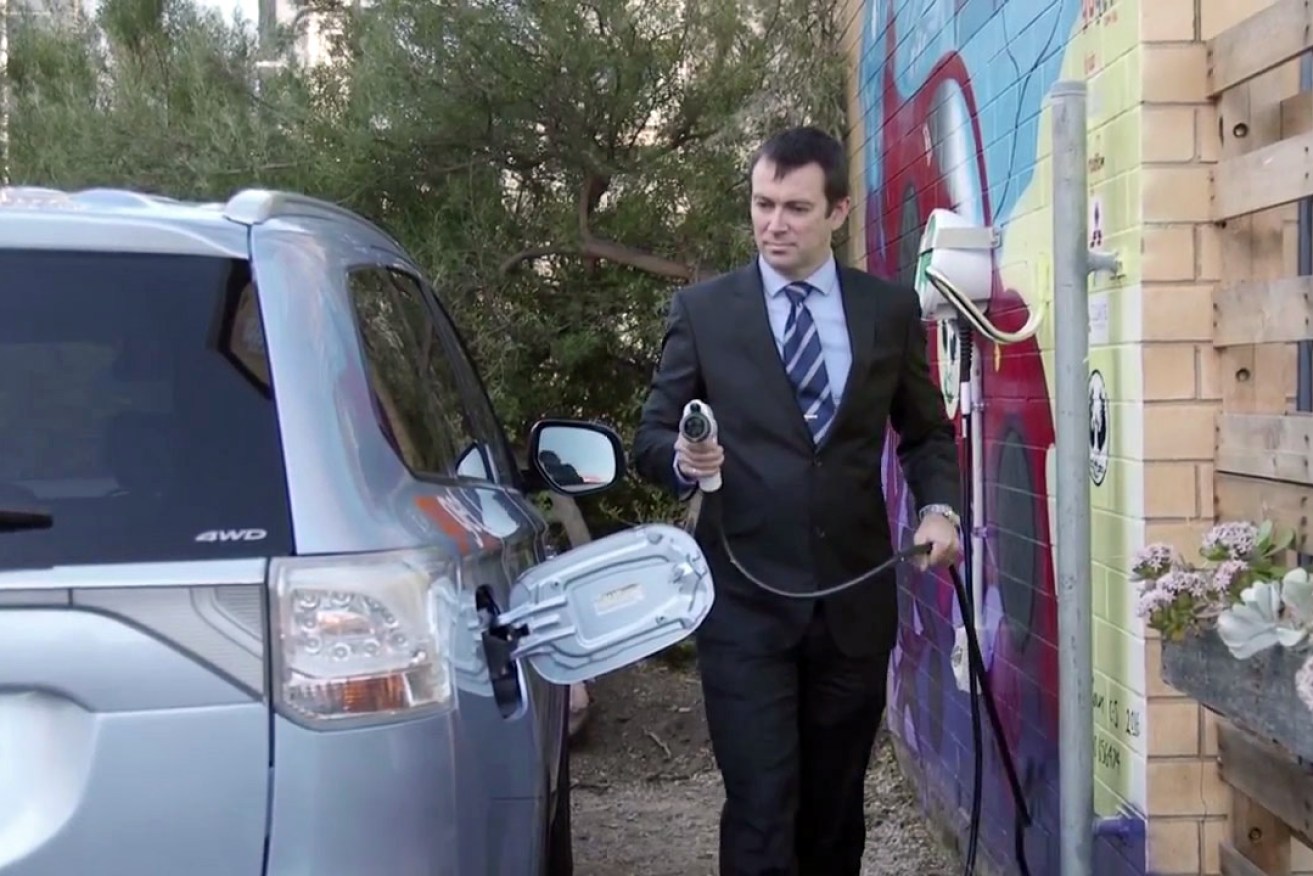Can this start-up seed Adelaide’s new manufacturing industry?
An Adelaide start-up is aiming to rouse a new manufacturing industry in South Australia while helping force down carbon emissions and, ultimately, re-employing hundreds of skilled workers from Holden.


Engineer Michael Smyth, about to plug in and charge up an electric four-wheel drive. Image: supplied.
Engineer Michael Smyth has spent his career developing specialised vehicles to solve problems.
During the late 1990s, his innovations in mining trucks helped substantially speed up the delivery of explosives – improving the efficiency of operations during the mining boom.
In his later work with Defence, he developed new technologies for armoured vehicles to protect soldiers during Australia’s deployments to Iraq and Afghanistan.
Now, Smyth is leading Adelaide electric vehicle start-up Clement Vehicles, developing prototypes for the SA and Australian market, and ambitiously planning to use the advanced manufacturing skills of workers made redundant by Holden to build a large-scale electric car industry in SA by around 2020.
“We have got a lot of [car manufacturing] experts in this state,” Smyth tells InDaily.
“We do want to re-employ those people and access those skills… we require a whole new manufacturing industry.”
The small company, made up of Smyth and three fellow engineers, has won $10,000 as a finalist in the State Government’s Low Carbon Entrepreneur prize, in the Adelaide to Zero Carbon Neutral Challenge, to develop two prototype electric cars – a sports car and a four-wheel drive – which will be presented to judges later this year.
For the moment, Smyth and his team are deliberately “keeping small”, but he says it won’t stay that way for long.
“It’s very much early days establishing [the business] – we’re keeping it small very deliberately,” he says.
“What we’re trying at the moment [is] developing some proof-of-concept vehicles [but] what we would like to be is a company making several thousand vehicles per annum.”
Smyth says the international transport industry is on the cusp of major transition, and he believes his vehicles could help Australia’s economy ride the wave.
“You can benefit from the change or you can be a victim of change,” he says.
“That’s the choice for Australia.
“We define ourselves as a 21st-century economy [or] the old economy.
“For Australia to remain relevant in the first-world economy, these are the technologies we must master.”
He said SA would have to convert 4.3 per cent of the vehicles on its roads to renewable-powered electric in order to achieve the carbon reductions necessary to account for transport emissions in the city of Adelaide.
About 35 per cent of the City of Adelaide’s carbon emissions come from transport.
Asked how his vehicles would be able to compete against the likes of global electric vehicle giant Tesla Motors, Smyth said: “The aim is not to compete against those guys.”
Instead, the aim is to develop specialty vehicles in South Australia with new technology that can be later emulated by the larger manufacturers.
During the recent history of the automotive industry, he said, technological innovations had emanated from boutique, specialised, smaller companies rather than from mainstream manufacturers.
“It’s a longstanding tradition in the auto manufacturing industry that … any change comes from the small companies [and from people] outside the industry,” he says.
“The advancement that comes … is driven by specialty [manufacturers].”
Smyth concedes that, initially at least, the vehicles developed by his company would be out of the price range of many South Australians. But he says because of the speedy fall in the price of parts and materials to construct the cars, it was inevitable they would become cheaper over time.
“It will be relatively expensive, but much more affordable than a Tesla,” he says. “We expect prices to come down in the future [and] the range will increase.”
Smyth says that while electric vehicles are expensive now, their high durability can make them a viable investment.
Clement Vehicles is one of 11 finalists in the Low Carbon Entrepreneur competition, vying for a share of $250,000, to be awarded to the best ideas to reduce carbon emissions within the CBD and North Adelaide.
Other finalists include a drone package delivery system and a zero-carbon apartment building for Adelaide’s CBD.
Solstice Media has partnered with the South Australian Government to provide information about the transition to a low-carbon economy.




